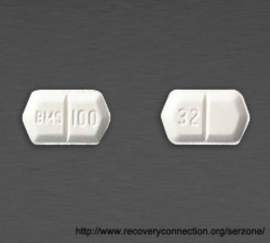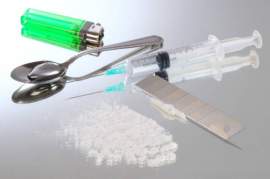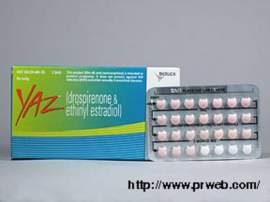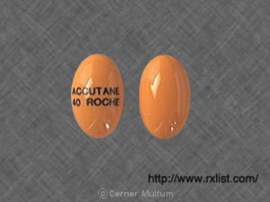
Volstead Act Text
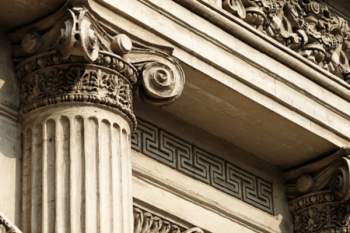
Volstead Act’s Original Text: TITLE I. TO PROVIDE FOR THE ENFORCEMENT OF WAR PROHIBITION. The term "War Prohibition Act" used in this Act shall mean the provisions of any Act or Acts prohibiting the sale and manufacture of intoxicating liquors until the conclusion of the present war and thereafter until the termination of demobilization, the date of which shall be determined and proclaimed by the President of the United States. The words "beer, wine, or other intoxicating malt or vinous liquors" in the War Prohibition Act shall be hereafter construed to mean any such beverages which contain one-half of 1 per centum or more of alcohol by volume: . . . SEC. 2. The Commissioner of Internal Revenue, his assistants, agents, and inspectors, shall investigate and report violations of the War Prohibition Act to the United States attorney for the district in which committed, who shall be charged with the duty of prosecuting, subject to the direction of the Attorney General, the offenders as in the case of other offenses against laws of the United States; and such Commissioner of Internal Revenue, his assistants, agents, and inspectors may swear out warrants before United States commissioners or other officers or courts authorized to issue the same for the apprehension of such offenders and may, subject to the control of the said United States attorney, conduct the prosecution at the committing trial for the purpose of having the offenders held for the action of a grand jury.... TITLE II. PROHIBITION OF INTOXICATING BEVERAGES. SEC. 3. No person shall on or after the date when the eighteenth amendment to the Constitution of the United States goes into effect, manufacture, sell, barter, transport import, export, deliver, furnish or possess my intoxicating liquor except as authorized in this Act, and all the provisions of this Act shall be liberally construed to the end that the use of intoxicating liquor as a beverage may be prevented. Liquor for non beverage purposes and wine or sacramental purposes may be manufactured, purchased, sold, bartered transported, imported, exported, delivered, furnished and possessed, but only as herein provided, and he commissioner may, upon application, issue permits therefor: Provided, That nothing| in this Act shall prohibit the purchase and sale of warehouse receipts covering distilled spirits on deposit in Government bonded warehouses, and no special tax liability shall attach to the business of purchasing and selling such warehouse receipts.... SEC. 6. No one shall manufacture, sell, purchase, transport, or prescribe any liquor without first obtaining a permit from the commissioner so to do, except that a person may, without a permit, purchase and use liquor for medicinal purposes when prescribed by a physician as herein provided, and except that any person who in the opinion of the commissioner is conducting a bona fide hospital or sanitarium engaged in the treatment of persons suffering from alcoholism, may, under such rules, regulations, and conditions as the commissioner shall prescribe, purchase and use, in accordance with the methods in use in such institution liquor, to be administered to the patients of such institution under the direction of a duly qualified physician employed by such institution. All permits to manufacture, prescribe, sell, or transport liquor, may be issued for one year, and shall expire on the 31st day of December next succeeding the issuance thereof: . . . Permits to purchase liquor shall specify the quantity and kind to be purchased and the purpose for which it is to |be used. No permit shall be issued to any person who within one year prior to the application therefor or issuance thereof shall have violated the terms of any permit issued under this Title or any law of the United states or of any State regulating traffic in liquor. No permit shall be issued to anyone to sell liquor at retail, unless the sale is to be made through a pharmacist designated in the permit and duly licensed under the laws of his State to compound and dismedicine prescribed by a duly licensed physician. No one shall be given a permit describe liquor unless he is a physician licensed to practice medicine and actively engaged in the practice of such profession. . . Nothing in this title shall be held to apply to the manufacture, sale, transportation, importation , possession, or distribution of wine for sacramental purposes, or like religious rites, except section 6 (save as the same requires a permit to purchase) and section 10 hereof, and the provisions of this Act prescribing penalties for the violation of either of said sections. No person to whom a permit may be issued to manufacture, transport, import, or sell wines for sacramental purposes or like religious rites shall sell, barter, exchange, or furnish any such to any person not a rabbi, minister of the gospel, priest, or an officer duly authorized for the purpose by any church or congregation, nor to any such except upon an application duly subscribed by him, which application, authenticated as regulations may prescribe, shall be filed and preserved by the seller. The head of any conference or diocese or other ecclesiastical jurisdiction may designate any rabbi, minister, or priest to supervise the manufacture of wine to be used for the purposes and rites in this section mentioned, and the person so designated may, in the discretion of the commissioner, be granted a permit to supervise such manufacture. SEC. 7. No one but a physician holding a permit to prescribe liquor shall issue any prescription for liquor. And no physician shall prescribe liquor unless after careful physical examination of the person for whose use such prescription is sought, or if such examination is found impracticable, then upon the best information obtainable, he in good faith believes that the use of such liquor as a medicine by such person is necessary and will afford relief to him from some known ailment. Not more than a pint of spiritous liquor to be taken internally shad be prescribed for use by the same person within any period of ten days and no prescription shall he filled more than once. Any pharmacist filling a prescription shall at the time endorse upon it over his own signature the word "canceled," together with the date when the liquor was delivered, and then make the same a part of the record that he is required to keep as herein provided.... SEC. 18. It shall be unlawful to advertise, manufacture, sell, or possess for sale any utensil, contrivance, machine, preparation, compound, tablet, substance, formula direction, recipe advertised, designed, or intended for use in the unlawful manufacture of intoxicating liquor.... SEC. 21. Any room, house, building, boat, vehicle, structure, or place where intoxicating liquor is manufactured, sold, kept, or bartered in violation of this title, and all intoxicating liquor and property kept and used in maintaining the same, is hereby declared to be a common nuisance, and any person who maintains such a common nuisance shall be guilty of a misdemeanor and upon conviction thereof shall be fined not more than $1,000 or be imprisoned for not more than one year, or both.... SEC. 25. It shall be unlawful to have or possess any liquor or property designed for the manufacture of liquor intended for use in violating this title or which has been so used, and no property rights shall exist in any such liquor or property.... No search warrant shall issue to search any private dwelling occupied as such unless it is being used for the unlawful sale of intoxicating liquor, or unless it is in part used for some business purposes such as a store, shop, saloon, restaurant, hotel, or boarding house.... SEC. 29. Any person who manufactures or sells liquor in violation of this title shall for a first offense be fined not more than $1,000, or imprisoned not exceeding six months, and for a second or subsequent offense shall be fined not less than $200 nor more than $2,000 and be imprisoned not less than one month nor more than five years. Any person violating the provisions of any permit, or who makes any false record, report, or affidavit required by this title, or violates any of the provisions of this title, for which offense a special penalty is not prescribed, shall be fined for a first offense not more than $500; for a second offense not less than $100 nor more than $1,000, or be imprisoned not more than ninety days; for any subsequent offense he shall be fined not less than $500 and be imprisoned not less than three months nor more than two years.... SEC. S3. After February 1, 1920, the possession of liquors by any person not legally permitted under this title to possess liquor shall be prima facie evidence that such liquor is kept for the purpose of being sold, bartered, exchanged, given away, furnished, or otherwise disposed of in violation of the Provisions of this title.... But it shall not be unlawful to possess liquors in one's private dwelling while the same is occupied and used by him as his dwelling only and such liquor need not be reported, provided such liquors are for use only for the personal consumption of the owner thereof and his family residing in such dwelling and of his bona fide guests when entertained by him therein; and the burden of proof shall be upon the possessor in any action concerning She same to prove that such liquor was law.ully acquired, possessed, and used....
Volstead Act’s Original Text: TITLE I. TO PROVIDE FOR THE ENFORCEMENT OF WAR PROHIBITION. The term "War Prohibition Act" used in this Act shall mean the provisions of any Act or Acts prohibiting the sale and manufacture of intoxicating liquors until the conclusion of the present war and thereafter until the termination of demobilization, the date of which shall be determined and proclaimed by the President of the United States. The words "beer, wine, or other intoxicating malt or vinous liquors" in the War Prohibition Act shall be hereafter construed to mean any such beverages which contain one-half of 1 per centum or more of alcohol by volume: . . . SEC. 2. The Commissioner of Internal Revenue, his assistants, agents, and inspectors, shall investigate and report violations of the War Prohibition Act to the United States attorney for the district in which committed, who shall be charged with the duty of prosecuting, subject to the direction of the Attorney General, the offenders as in the case of other offenses against laws of the United States; and such Commissioner of Internal Revenue, his assistants, agents, and inspectors may swear out warrants before United States commissioners or other officers or courts authorized to issue the same for the apprehension of such offenders and may, subject to the control of the said United States attorney, conduct the prosecution at the committing trial for the purpose of having the offenders held for the action of a grand jury.... TITLE II. PROHIBITION OF INTOXICATING BEVERAGES. SEC. 3. No person shall on or after the date when the eighteenth amendment to the Constitution of the United States goes into effect, manufacture, sell, barter, transport import, export, deliver, furnish or possess my intoxicating liquor except as authorized in this Act, and all the provisions of this Act shall be liberally construed to the end that the use of intoxicating liquor as a beverage may be prevented. Liquor for non beverage purposes and wine or sacramental purposes may be manufactured, purchased, sold, bartered transported, imported, exported, delivered, furnished and possessed, but only as herein provided, and he commissioner may, upon application, issue permits therefor: Provided, That nothing| in this Act shall prohibit the purchase and sale of warehouse receipts covering distilled spirits on deposit in Government bonded warehouses, and no special tax liability shall attach to the business of purchasing and selling such warehouse receipts.... SEC. 6. No one shall manufacture, sell, purchase, transport, or prescribe any liquor without first obtaining a permit from the commissioner so to do, except that a person may, without a permit, purchase and use liquor for medicinal purposes when prescribed by a physician as herein provided, and except that any person who in the opinion of the commissioner is conducting a bona fide hospital or sanitarium engaged in the treatment of persons suffering from alcoholism, may, under such rules, regulations, and conditions as the commissioner shall prescribe, purchase and use, in accordance with the methods in use in such institution liquor, to be administered to the patients of such institution under the direction of a duly qualified physician employed by such institution. All permits to manufacture, prescribe, sell, or transport liquor, may be issued for one year, and shall expire on the 31st day of December next succeeding the issuance thereof: . . . Permits to purchase liquor shall specify the quantity and kind to be purchased and the purpose for which it is to |be used. No permit shall be issued to any person who within one year prior to the application therefor or issuance thereof shall have violated the terms of any permit issued under this Title or any law of the United states or of any State regulating traffic in liquor. No permit shall be issued to anyone to sell liquor at retail, unless the sale is to be made through a pharmacist designated in the permit and duly licensed under the laws of his State to compound and dismedicine prescribed by a duly licensed physician. No one shall be given a permit describe liquor unless he is a physician licensed to practice medicine and actively engaged in the practice of such profession. . . Nothing in this title shall be held to apply to the manufacture, sale, transportation, importation , possession, or distribution of wine for sacramental purposes, or like religious rites, except section 6 (save as the same requires a permit to purchase) and section 10 hereof, and the provisions of this Act prescribing penalties for the violation of either of said sections. No person to whom a permit may be issued to manufacture, transport, import, or sell wines for sacramental purposes or like religious rites shall sell, barter, exchange, or furnish any such to any person not a rabbi, minister of the gospel, priest, or an officer duly authorized for the purpose by any church or congregation, nor to any such except upon an application duly subscribed by him, which application, authenticated as regulations may prescribe, shall be filed and preserved by the seller. The head of any conference or diocese or other ecclesiastical jurisdiction may designate any rabbi, minister, or priest to supervise the manufacture of wine to be used for the purposes and rites in this section mentioned, and the person so designated may, in the discretion of the commissioner, be granted a permit to supervise such manufacture. SEC. 7. No one but a physician holding a permit to prescribe liquor shall issue any prescription for liquor. And no physician shall prescribe liquor unless after careful physical examination of the person for whose use such prescription is sought, or if such examination is found impracticable, then upon the best information obtainable, he in good faith believes that the use of such liquor as a medicine by such person is necessary and will afford relief to him from some known ailment. Not more than a pint of spiritous liquor to be taken internally shad be prescribed for use by the same person within any period of ten days and no prescription shall he filled more than once. Any pharmacist filling a prescription shall at the time endorse upon it over his own signature the word "canceled," together with the date when the liquor was delivered, and then make the same a part of the record that he is required to keep as herein provided.... SEC. 18. It shall be unlawful to advertise, manufacture, sell, or possess for sale any utensil, contrivance, machine, preparation, compound, tablet, substance, formula direction, recipe advertised, designed, or intended for use in the unlawful manufacture of intoxicating liquor.... SEC. 21. Any room, house, building, boat, vehicle, structure, or place where intoxicating liquor is manufactured, sold, kept, or bartered in violation of this title, and all intoxicating liquor and property kept and used in maintaining the same, is hereby declared to be a common nuisance, and any person who maintains such a common nuisance shall be guilty of a misdemeanor and upon conviction thereof shall be fined not more than $1,000 or be imprisoned for not more than one year, or both.... SEC. 25. It shall be unlawful to have or possess any liquor or property designed for the manufacture of liquor intended for use in violating this title or which has been so used, and no property rights shall exist in any such liquor or property.... No search warrant shall issue to search any private dwelling occupied as such unless it is being used for the unlawful sale of intoxicating liquor, or unless it is in part used for some business purposes such as a store, shop, saloon, restaurant, hotel, or boarding house.... SEC. 29. Any person who manufactures or sells liquor in violation of this title shall for a first offense be fined not more than $1,000, or imprisoned not exceeding six months, and for a second or subsequent offense shall be fined not less than $200 nor more than $2,000 and be imprisoned not less than one month nor more than five years. Any person violating the provisions of any permit, or who makes any false record, report, or affidavit required by this title, or violates any of the provisions of this title, for which offense a special penalty is not prescribed, shall be fined for a first offense not more than $500; for a second offense not less than $100 nor more than $1,000, or be imprisoned not more than ninety days; for any subsequent offense he shall be fined not less than $500 and be imprisoned not less than three months nor more than two years.... SEC. S3. After February 1, 1920, the possession of liquors by any person not legally permitted under this title to possess liquor shall be prima facie evidence that such liquor is kept for the purpose of being sold, bartered, exchanged, given away, furnished, or otherwise disposed of in violation of the Provisions of this title.... But it shall not be unlawful to possess liquors in one's private dwelling while the same is occupied and used by him as his dwelling only and such liquor need not be reported, provided such liquors are for use only for the personal consumption of the owner thereof and his family residing in such dwelling and of his bona fide guests when entertained by him therein; and the burden of proof shall be upon the possessor in any action concerning She same to prove that such liquor was law.ully acquired, possessed, and used....
Link To This Page
Comments
Tips




